- Home
- Susan Hill
The Woman in Black Page 7
The Woman in Black Read online
Page 7
Shuddering at the dreadful thoughts racing through my mind and the pictures I could not help but see of those poor creatures being slowly choked and drowned to death in mud and water, I forgot my own fears and nervous imaginings of a few minutes earlier and concentrated on getting back to the house as quickly and safely as I could. The water was now lapping very close to the edges of the path though I could only hear it, the mist was still so thick and darkness had completely fallen, and it was with a gasp of relief that I felt the turf and then the gravel beneath my feet and fumbled my way blindly to the door of the house.
Behind me, out on the marshes, all was still and silent; save for that movement of the water, the pony and trap might never have existed.
When I got inside the house again, I managed to reach a chair in that dark hall and, sitting on it just as my legs buckled beneath me, I put my head down into my hands and gave way to an outburst of helpless sobbing as the full realization of what had just happened overcame me.
For how long I sat there, in extremes of despair and fearfulness, I do not know. But after some time I was able to pull myself together sufficiently to get up and go about the house, switching on every light that I could make work and leaving them on, though they were none of them very bright, and, in my heart, I knew that there was little chance of what was not much more than a glow from a handful of scattered lamps being seen across that misty land, even had there been any watcher or traveler on hand to glimpse them. But I had done something—all that I could do indeed—and I felt just fractionally better because of it. After that, I began searching in cupboards and sideboards and kitchen dressers until at last, at the very back of one such in the dining room, I found a bottle of brandy—thirty years old and still fully corked and sealed. I opened it, found a glass, and poured myself as large a measure as seemed sensible to be consumed by a man in a state of great shock, some hours away from his last meal.
The room had clearly not been used by Mrs. Drablow for many years. The furniture had a faded bloom from the salt in the air and the candlesticks and épergne were tarnished, the linen cloths stiffly folded and interleaved with yellowing tissue, the glass and china dusty.
I went back into the one room in the house that had some pretensions to comfort, for all it was chilly and musty-smelling, the little sitting-room, and there I sipped my brandy and tried as calmly as I could to work out what I should do.
But as the drink took effect I became more rather than less agitated and my brain was in an increasing turmoil. I began to be angry with Mr. Bentley for sending me here, at my own foolish independence and blockheadedness in ignoring all the hints and veiled warnings I had received about the place, and to long—no, to pray—for some kind of speedy deliverance and to be back in the safety and comforting busyness and clamor of London, among friends—indeed among any people at all—and with Stella.
I could not sit still in that claustrophobic and yet oddly hollow-feeling old house, but rambled about from room to room, lifting up this and that object and setting it down again hopelessly and then going upstairs, to wander into shuttered bedrooms and up again, to attics full of lumber, uncarpeted and without curtains or blinds at the tall narrow windows.
Every door was open, every room orderly, dusty, bitterly cold and damp and yet also somehow stifling. Only one door was locked, at the far end of a passage that led away from three bedrooms on the second floor. There was no keyhole, no bolt on the outside.
For some obscure reason, I became angry with that door, I kicked at it and rattled the handle hard, before giving up abruptly and returning downstairs, listening to the echo of my own footsteps as I went.
Every few moments, I went to one or other of the windows, rubbed my hand across the pane to try and see out; but, although I rubbed at a thin film of grime, enough to leave a clear space, I could not rub away the curtain of sea-mist that was so close up to the glass on the outside. As I stared into it I saw that it was still constantly shifting, like clouds, though without ever parting or dispersing.
At last I slumped down on the plush-covered sofa in the great high-ceilinged drawing room, turned my face away from the window, and gave myself up, along with the last of a second glass of the mellow, fragrant brandy, to melancholy brooding and a sort of inward-looking self-pity. I was no longer cold, no longer afraid or restless, I felt cocooned against the horrible events that had taken place out on the marshes and I allowed myself to give way, to slip down into this mindless state, which was as inchoate as the fog outside, and there to rest, wallow and find, if not peace, at least a certain relief in the suspension of all extremes of emotion.
A bell was ringing, ringing, through my ears, inside my head, its clangor sounded at once very close and oddly distant, it seemed to sway, and I to sway with it. I was trying to struggle out of some darkness which was not fixed but shifting about, as the ground seemed to be shifting beneath my feet, so that I was terrified of slipping and falling down, down, of being sucked into a horrible echoing maelstrom. The bell went on ringing. I came awake in bewilderment, to see the moon, huge as a pumpkin beyond the tall windows, in a clear black sky.
My head was thick, my mouth furred and dry, my limbs stiff. I had slept, perhaps for minutes, perhaps for some hours, I had lost my sense of time. I struggled upright and then I realized that the bell I heard was not part of the confusion of my fitful nightmare but a real bell sounding through the house. Someone was at the front door.
As I half-walked, half-fell, because of numbness in my feet and legs where I had lain cramped upon the sofa, out of the room and into the hall, I began to remember what had happened and above all—and I felt an upsurge of horror as the memory returned to me—the business of the pony and trap, from which I had heard the child screaming, out upon Eel Marsh. All the lights I had left on were still shining out and must have been seen, I thought, as I pulled open the front door, hoping against hope to see a party of searchers and helpers, strong men, people to whom I could give it all over, who would know what to do and who would, above all, take me away from this place.
But in the light of the hall as it shone out and under the full moonlight too, there stood, on the gravel drive, only one man—Keckwick. And behind him, the pony and trap. All seemed quite real, quite normal, and completely unharmed. The air was clear and cold, the sky thick with stars. The marshes lay still and silent and gleaming silver under the moon. There was no vestige of mist or cloud, not so much as a touch of dampness in the atmosphere. All was so changed, so utterly changed that I might have been reborn into another world and all the rest had been some fevered dream.
“You have to wait for a fret like that to clear itself. There’s no crossing over while a fret’s up,” Keckwick said matter-of-factly. “Unlucky for you, that was.”
My tongue seemed to be held fast against the roof of my mouth, my knees about to buckle beneath me.
“And, after that, there’s the wait for the tide.” He looked all round him. “Awkward place. You’ll be finding that out fast enough.”
It was then that I managed to look at my watch and saw that it was almost two o’clock in the morning. The tide had just begun to recede again, revealing the Nine Lives Causeway. I had slept for almost seven hours, almost as long as I would on any normal night, but here I was with hours still to go before dawn, feeling as sick and wretched and weary as any man who has lain sleepless for hour after hour. “I wouldn’t have expected you to come back at this hour,” I managed to stammer. “It’s very good of you …”
Keckwick pushed his cap back a little in order to scratch at his forehead and I noticed that his nose and much of the lower part of his face were covered in bumps and lumps and warts and that the skin was porridgy in texture and a dark, livid red. “I wouldn’t have left you over the night,” he said at last, “wouldn’t have done that to you.”
I felt a moment of light-headedness, for we seemed to have slipped into the way of normal, practical conversation —indeed, I was glad to see him, never had I we
lcomed the sight of a fellow human being more in my life and to see his solid little pony that stood quietly, patiently, by.
But then the second recollection returned to me and I blurted out, “But what happened to you, how do you manage to be here—how did you get out?” Then my heart lurched as I realized that of course it had not been Keckwick and his pony who had gone into the quicksand, not at all, but someone else, someone with a child, and now they were gone, dead, the marsh had taken them and the waters had closed over them and no ripple or disturbance of the faintest kind showed on that still, gleaming surface. But who, who, on a dark November evening in the rolling mist and the rising tide, who had been driving out, and with a child too, in that treacherous place and why, where had they been driving to and where coming from—this was the only house for many miles, unless I had been right about the woman in black and her hidden dwelling.
Keckwick was looking straight into my face and I realized that I must appear disheveled and wild, not at all the business-like, confident and smart young lawyer he had left at the house that afternoon. Then he indicated the pony trap: “Best get in,” he said.
“Yes—but surely …”
He had turned away abruptly and was climbing into the driving seat. There, looking straight ahead of him, huddled into his greatcoat with the collar turned to cover his neck and chin, he waited. That he was fully aware of my state, knew something had happened to me and was quite unsurprised, was clear, and his manner also told me unmistakably that he did not wish to hear what it was, to ask or answer questions, to discuss the business at all. He would fetch and carry and that reliably and at any hour and he would do no more.
Silently, quickly, I went back into the house and switched off the lights and then I got into the car and let Keckwick and his pony take me away, across the quiet, eerily beautiful marshes, under the riding moon. I fell into a sort of trance, half sleeping, half waking, rocked by the motion of the cart. My head had begun to ache miserably and my stomach to contract with spasms of nausea now and again. I did not look about me, though sometimes I glanced up into the great bowl of the night sky and at the constellations scattered there and the sight was comforting and calming to me, things in the heavens seemed still to be aright and unchanged. But nothing else was, within me or all around. I knew now that I had entered some hitherto unimagined—indeed, unbelieved-in—realm of consciousness, that coming to this place had already changed me and that there was no going back. For, today, I had seen things I had never dreamed of seeing and heard things too. That the woman by the graves had been ghostly I now—not believed, no—knew, for certainty lay deep within me, I realized that it had become fixed and immovable, perhaps during that restless, anguished sleep. But I began to suspect that the pony and trap that I had heard out on the marsh, the pony and trap with the child who had cried out so terribly and which had been sucked into the quicksands, while marsh and estuary, land and sea, had been shrouded in that sudden fog, and I lost in the midst of it—they, too, had not been real, not there, present, not substantial, but ghostly also. What I had heard, I had heard, as clearly as I now heard the roll of the cart and the drumming of the pony’s hooves, and what I had seen—the woman with the pale wasted face, by the grave of Mrs. Drablow and again in the old burial ground—I had seen. I would have sworn to that on oath, on any testament. Yet they had been, in some sense I did not understand, unreal, ghostly, things that were dead.
Having accepted so much, I at once felt calmer and so we left the marsh and the estuary behind us and clopped along the lane in the middle of that quiet night. I supposed that the landlord of the Gifford Arms could be knocked up and persuaded to let me in, and then I intended to go up to that comfortable bed and sleep again, to try and shut out all these things from my head and my heart and not think of them more. Tomorrow, in daylight, I would recover myself and then plan what I was going to do. At this moment I knew that more than anything else I did not want to have to go back to Eel Marsh House and must try to find some way of extricating myself from any more dealings with the affairs of Mrs. Drablow. Whether I would make some excuse to Mr. Bentley or endeavor to tell him the truth and hope not to be ridiculed I did not try and decide.
It was only as I was getting myself ready for bed—the landlord having proved most sympathetic and accommodating—that I began to think again about the extraordinary generosity of Keckwick, in coming out for me the moment the mist and tides enabled him to do so. He would surely have been expected to shrug his shoulders, retire and plan to collect me first thing in the morning. But he must have waited up and perhaps even kept his pony harnessed, in his concern that I should not have to spend a night alone in that house. I was profoundly grateful to him and I made a note that he should receive a generous reward for his pains.
It was after three o’clock when I climbed into bed, and it would not be light for another five hours. The landlord had said I was to sleep on as long as I chose, no one would disturb me and a breakfast would be provided at any time. He, too, in his different way, had seemed as anxious for my welfare as Keckwick, though about them both there was the same extreme reserve, a barrier put up against all inquiry which I had the sense not to try and break down. Who could tell what they themselves had seen or heard, how much more they knew about the past and all manner of events, not to mention rumors and hearsay and superstition about those events, I could not guess. The little I had experienced was more than enough and I was reluctant to begin delving into any explanations.
So I thought that night, as I laid my head on the soft pillow and fell eventually into a restless, shadowy sleep, across which figures came and went, troubling me, so that once or twice I half-woke myself, as I cried out or spoke a few incoherent words, I sweated, I turned and turned about, trying to free myself from the nightmares, to escape from my own semi-conscious sense of dread and foreboding, and all the time, piercing through the surface of my dreams, came the terrified whinnying of the pony and the crying and calling of that child over and over, while I stood, helpless in the mist, my feet held fast, my body pulled back, and while behind me, though I could not see, only sense her dark presence, hovered the woman.
Mr. Jerome Is Afraid
When I awoke, it was again to see the pleasant bedroom filled with bright winter sunshine. But it was with a great sense of weariness and bitterness, too, that I contrasted my present state with that of the previous morning, when I had slept so well and woken so refreshed and sprung out of bed eager to begin the day. And was it only yesterday? I felt as if I had journeyed so far, in spirit if not in time experienced so much and been so churned about within my formerly placid and settled self that it might have been years since then. Now, I felt heavy and sick in my head, stale and tired and jangled too, my nerves and my imagination were all on edge.
But, after a while, I forced myself to rise, as I could hardly feel worse than I did lying in the bed that now felt as lumpish and uncomfortable as a heap of potato sacks. Once I had drawn back the curtains on a sharp blue sky and taken a good hot bath, followed by a rinse of my head and neck under the cold tap, I began to feel less frowsty and depressed, more composed and able to think in an orderly way about the day ahead. Over breakfast, for which I had a better appetite than I had expected, I put to myself the various alternatives. Last night I had been adamant and would have brooked no possible opposition—I was having nothing more to do with Eel Marsh and the Drablow business but would telegraph to Mr. Bentley, leave matters in the hands of Mr. Jerome and take the first available train to London.
In short, I was going to run away. Yes, that was how I saw it in the bright light of day. I attached no particular blame to my decision. I had been as badly frightened as a man could be. I did not think that I would be the first to run from physical risks and dangers, although I had no reason to suppose myself markedly braver than the next person. But these other matters were altogether more terrifying, because they were intangible and inexplicable, incapable of proof and yet so deeply affecting. I be
gan to realize that what had frightened me most—and, as I investigated my own thoughts and feelings that morning, what continued to frighten me—was not what I had seen—there had been nothing intrinsically repellent or horrifying about the woman with the wasted face. It was true that the ghastly sounds I had heard through the fog had greatly upset me but far worse was what emanated from and surrounded these things and arose to unsteady me, an atmosphere, a force—I do not exactly know what to call it—of evil and uncleanness, of terror and suffering, of malevolence and bitter anger. I felt quite at a loss to cope with any of these things.
“You’ll find Crythin a quieter place today,” the landlord said, as he came to clear away my plate and replenish my pot of coffee. “Market day brings everyone from miles about. There’ll be little enough happening this morning.”
He stood for a moment, looking at me closely and I again felt it necessary to apologize for having had him get up and come down to let me in, the previous night. He shook his head. “Oh, I had rather that than have you spend an … an uncomfortable night anywhere else.”
“As it happened, my night was a bit disturbed in any case. I seemed to have an overdose of bad dreams and be generally restless.”
He said nothing.
“I think what I need this morning is some exercise in the fresh air. Perhaps I’ll walk into the countryside a mile or so, look at the farms belonging to some of the men who were all here doing their market business yesterday.”
What I meant was that I planned to turn my back upon the marshes and walk steadfastly in the opposite direction.

 Mrs De Winter
Mrs De Winter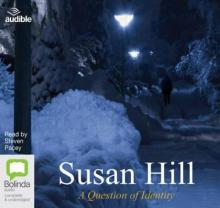 A Question of Identity
A Question of Identity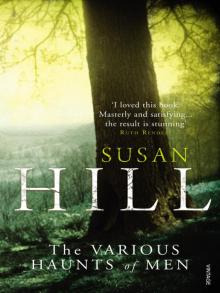 The Various Haunts of Men
The Various Haunts of Men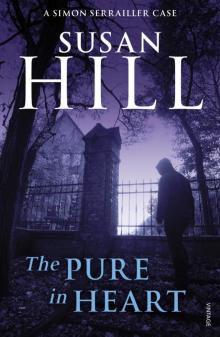 The Pure in Heart
The Pure in Heart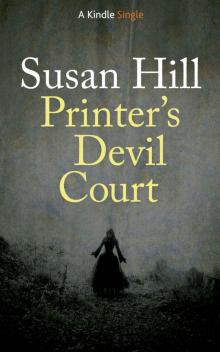 Printer's Devil Court
Printer's Devil Court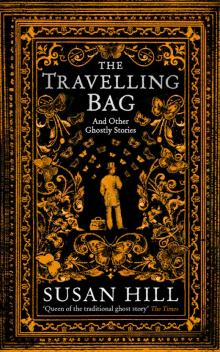 The Travelling Bag
The Travelling Bag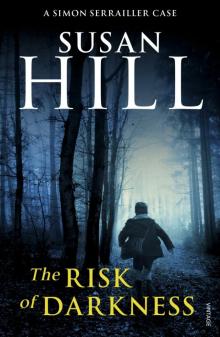 The Risk of Darkness
The Risk of Darkness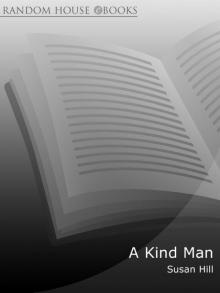 A Kind Man
A Kind Man Black Sheep
Black Sheep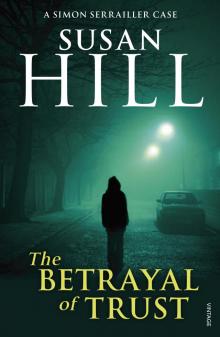 The Betrayal of Trust
The Betrayal of Trust The Service of Clouds
The Service of Clouds Betrayal of Trust
Betrayal of Trust The Small Hand
The Small Hand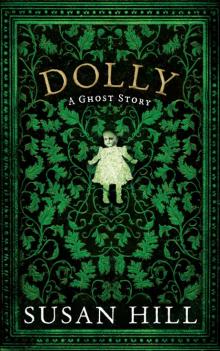 Dolly
Dolly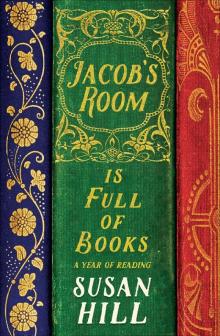 Jacob's Room Is Full of Books: A Year of Reading
Jacob's Room Is Full of Books: A Year of Reading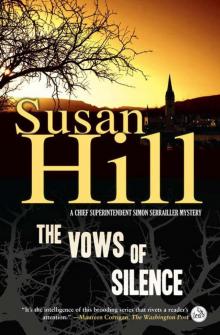 The Vows of Silence
The Vows of Silence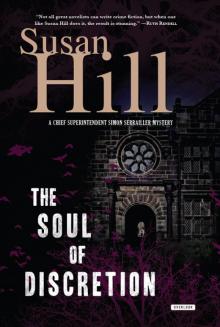 The Soul of Discretion
The Soul of Discretion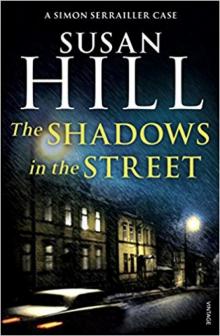 The Shadows in the Street
The Shadows in the Street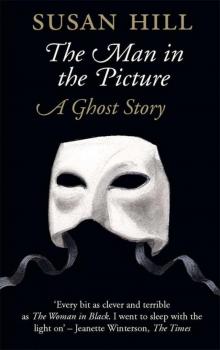 The Man in the Picture
The Man in the Picture Air and Angels
Air and Angels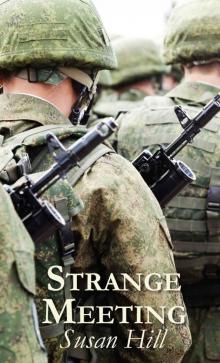 Strange Meeting
Strange Meeting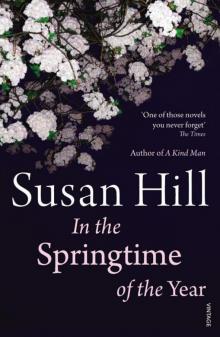 In the Springtime of the Year
In the Springtime of the Year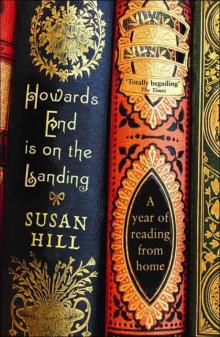 Howards End Is on the Landing: A Year of Reading From Home
Howards End Is on the Landing: A Year of Reading From Home From the Heart
From the Heart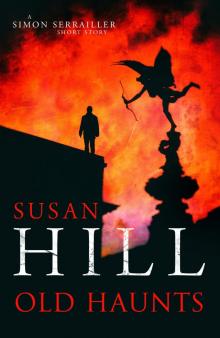 Old Haunts
Old Haunts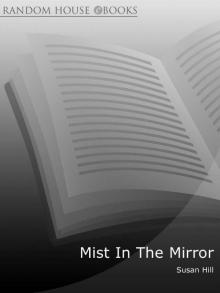 The Mist in the Mirror
The Mist in the Mirror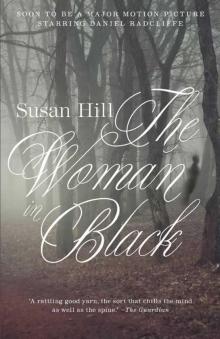 The Woman in Black: A Ghost Story
The Woman in Black: A Ghost Story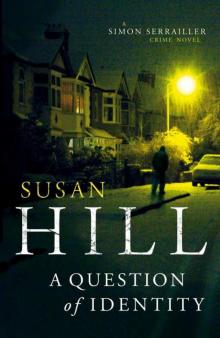 A Question of Identity (Simon Serrailler 7)
A Question of Identity (Simon Serrailler 7)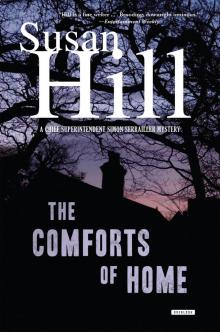 The Comforts of Home
The Comforts of Home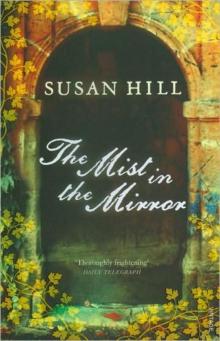 Mist in the Mirror
Mist in the Mirror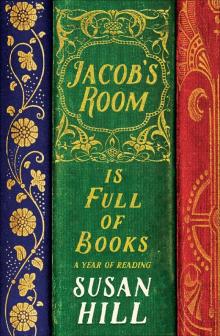 Jacob's Room is Full of Books
Jacob's Room is Full of Books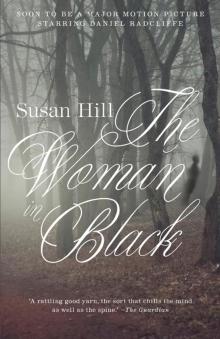 The Woman in Black
The Woman in Black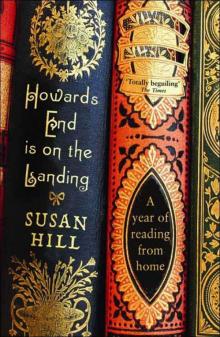 Howards End is on the Landing
Howards End is on the Landing